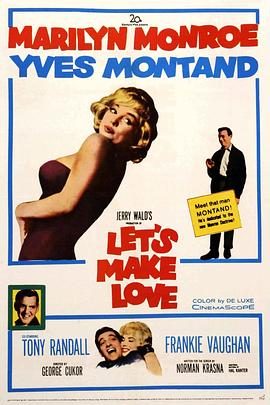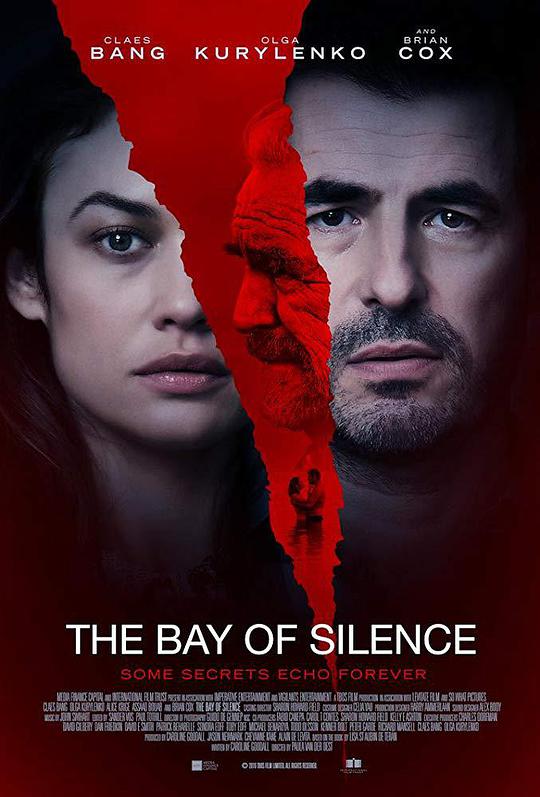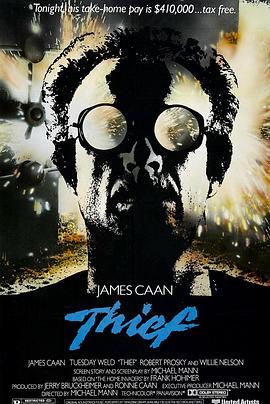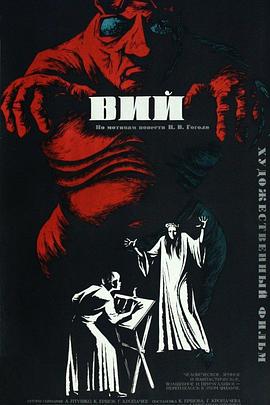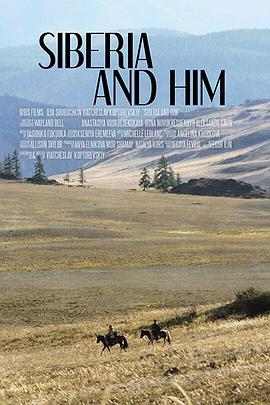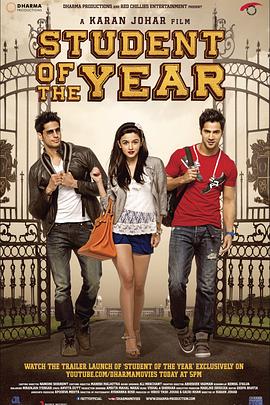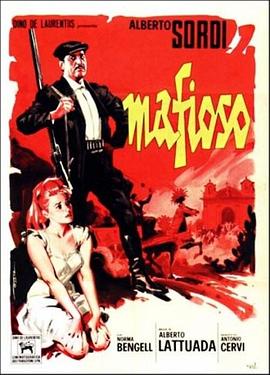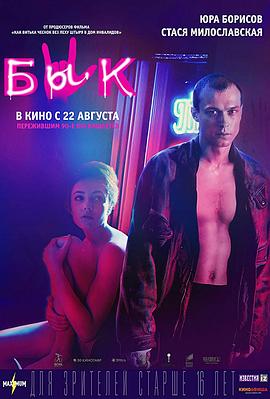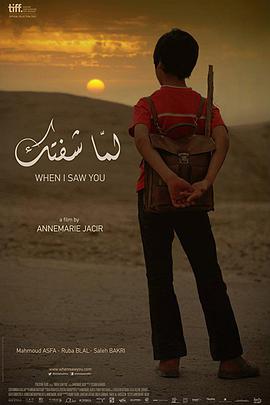-
备注:已完结
类型:战争片
主演:Andrzej Banaszewski Beata Barszczew
导演:斯坦尼斯拉夫·罗泽维格
语言:其它
年代:未知
简介: In 1961, Stanislaw Rozewicz created the novella film "Birth Certificate" in cooperation with his brother, Taduesz Rozewicz as screenwriter. Such brother tandems are rare in the history of film but aside from family ties, Stanislaw (born in 1924) and Taduesz (born in 1921) were mutually bound by their love for the cinema. They were born and grew up in Radomsk, a small town which had "its madmen and its saints" and most importanly, the "Kinema" cinema, as Stanislaw recalls: for him cinema is "heaven, the whole world, enchantment". Tadeusz says he considers cinema both a charming market stall and a mysterious temple. "All this savage land has always attracted and fascinated me," he says. "I am devoured by cinema and I devour cinema; I'm a cinema eater." But Taduesz Rozewicz, an eminent writer, admits this unique form of cooperation was a problem to him: "It is the presence of the other person not only in the process of writing, but at its very core, which is inserperable for me from absolute solitude." Some scenes the brothers wrote together; others were created by the writer himself, following discussions with the director. But from the perspective of time, it is "Birth Certificate", rather than "Echo" or "The Wicked Gate", that Taduesz describes as his most intimate film. This is understandable. The tradgey from September 1939 in Poland was for the Rozewicz brothers their personal "birth certificate". When working on the film, the director said "This time it is all about shaking off, getting rid of the psychological burden which the war was for all of us. ... Cooperation with my brother was in this case easier, as we share many war memories. We wanted to show to adult viewers a picture of war as seen by a child. ... In reality, it is the adults who created the real world of massacres. Children beheld the horrors coming back to life, exhumed from underneath the ground, overwhelming the earth." The principle of composition of "Birth Certificate" is not obvious. When watching a novella film, we tend to think in terms of traditional theatre. We expect that a miniature story will finish with a sharp point; the three film novellas in Rozewicz's work lack this feature. We do not know what will be happen to the boy making his alone through the forest towards the end of "On the Road". We do not know whether in "Letter from the Camp", the help offered by the small heroes to a Soviet prisoner will rescue him from the unknown fate of his compatriots. The fate of the Jewish girl from "Drop of Blood" is also unclear. Will she keep her new impersonation as "Marysia Malinowska"? Or will the Nazis make her into a representative of the "Nordic race"? Those questions were asked by the director for a reason. He preceived war as chaos and perdition, and not as linear history that could be reflected in a plot. Although "Birth Certificate" is saturated with moral content, it does not aim to be a morality play. But with the immense pressure of reality, no varient of fate should be excluded. This approached can be compared wth Krzysztof Kieslowski's "Blind Chance" 25 years later, which pictured dramatic choices of a different era. The film novella "On the Road" has a very sparing plot, but it drew special attention of the reviewers. The ominating overtone of the war films created by the Polish Film School at that time should be kept in mind. Mainly owing to Wajda, those films dealt with romantic heritage. They were permeated with pathos, bitterness, and irony. Rozewicz is an extraordinary artist. When narrating a story about a boy lost in a war zone, carrying some documents from the regiment office as if they were a treasure, the narrator in "On the Road" discovers rough prose where one should find poetry. And suddenly, the irrational touches this rather tame world. The boy, who until that moment resembled a Polish version of the Good Soldier Schweik, sets off, like Don Quixote, for his first and last battle. A critic described it as "an absurd gesture and someone else could surely use it to criticise the Polish style of dying. ... But the Rozewicz brothers do no accuse: they only compose an elegy for the picturesque peasant-soldier, probably the most important veteran of the Polish war of 1939-1945." "Birth Certificate" is not a lofty statement about national imponderabilia. The film reveals a plebeian perspective which Aleksander Jackieqicz once contrasted with those "lyrical lamentations" inherent in the Kordian tradition. However, a historical overview of Rozewicz's work shows that the distinctive style does not signify a fundamental difference in illustrating the Polish September. Just as the memorable scene from Wajda's "Lotna" was in fact an expression of desperation and distress, the same emotions permeate the final scene of "Birth Certificate". These are not ideological concepts, though once described as such and fervently debated, but rather psychological creations. In this specific case, observes Witold Zalewski, it is not about manifesting knightly pride, but about a gesture of a simple man who does not agree to be enslaved. The novella "Drop of Blood" is, with Aleksander Ford's "Border Street", one of the first narrations of the fate of the Polish Jews during the Nazi occupation. The story about a girl literally looking for her place on earth has a dramatic dimension. Especially in the age of today's journalistic disputes, often manipulative, lacking in empathy and imbued with bad will, Rozewicz's story from the past shocks with its authenticity. The small herione of the story is the only one who survives a German raid on her family home. Physical survial does not, however, mean a return to normality. Her frightened departure from the rubbish dump that was her hideout lead her to a ruined apartment. Her walk around it is painful because still fresh signs of life are mixed with evidence of annihilation. Help is needed, but Mirka does not know anyone in the outside world. Her subsequent attempts express the state of the fugitive's spirits - from hope and faith, moving to doubt, a sense of oppression, and thickening fear, and finally to despair. At the same time, the Jewish girl's search for refuge resembles the state of Polish society. The appearance of Mirka results in confusion, and later, trouble. This was already signalled by Rozewicz in an exceptional scene from "Letter from the Camp" in which the boy's neighbour, seeing a fugitive Russian soldier, retreats immediately, admitting that "Now, people worry only about themselves." Such embarassing excuses mask fear. During the occupation, no one feels safe. Neither social status not the aegis of a charity organisation protects against repression. We see the potential guardians of Mirka passing her back and forth among themselves. These are friendly hands but they cannot offer strong support. The story takes place on that thin line between solidarity and heroism. Solidarity arises spontaneously, but only some are capable of heroism. Help for the girl does not always result from compassion; sometimes it is based on past relations and personal ties (a neighbour of the doctor takes in the fugitive for a few days because of past friendship). Rozewicz portrays all of this in a subtle way; even the smallest gesture has significance. Take, for example, the conversation with a stranger on the train: short, as if jotted down on the margin, but so full of tension. And earlier, a peculiar examination of Polishness: the "Holy Father" prayer forced on Mirka by the village boys to check that she is not a Jew. Would not rising to the challenge mean a death sentance? Viewed after many years, "Birth Certificate" discloses yet another quality that is not present in the works of the Polish School, but is prominent in later B-class war films. This is the picture of everyday life during the war and occupation outlined in the three novellas. It harmonises with the logic of speaking about "life after life". Small heroes of Rozewicz suddenly enter the reality of war, with no experience or scale with which to compare it. For them, the present is a natural extension of and at the same time a complete negation of the past. Consider the sleey small-town marketplace, through which armoured columns will shortly pass. Or meet the German motorcyclists, who look like aliens from outer space - a picture taken from an autopsy because this is how Stanislaw and Taduesz perceived the first Germans they ever met. Note the blurred silhouettes of people against a white wall who are being shot - at first they are shocking, but soon they will probably become a part of the grim landscape. In the city centre stands a prisoner camp on a sodden bog ("People perish likes flies; the bodies are transported during the night"); in the street the childern are running after a coal wagon to collect some precious pieces of fuel. There's a bustle around some food (a boy reproaches his younger brother's actions by singing: "The warrant officer's son is begging in front of the church? I'm going to tell mother!"); and the kitchen, which one evening becomes the proscenium of a real drama. And there are the symbols: a bar of chocolate forced upon a boy by a Wehrmacht soldier ("On the Road"); a pair of shoes belonging to Zbyszek's father which the boy spontaneously gives to a Russian fugitive; a priceless slice of bread, ground under the heel of a policeman in the guter ("Letters from the Camp"). As the director put it: "In every film, I communicate my own vision of the world and of the people. Only then the style follows, the defined way of experiencing things." In Birth Certificate, he adds, his approach was driven by the subject: "I attempted to create not only the texture of the document but also to add some poetic element. I know it is risky but as for the merger of documentation and poety, often hidden very deep, if only it manages to make its way onto the screen, it results in what can referred to as 'art'." After 1945, there were numerous films created in Europe that dealt with war and children, including "Somewhere in Europe" ("Valahol Europaban", 1947 by Geza Radvanyi), "Shoeshine" ("Sciescia", 1946 by Vittorio de Sica), and "Childhood of Ivan" ("Iwanowo dietstwo" by Andriej Tarkowski). Yet there were fewer than one would expect. Pursuing a subject so imbued with sentimentalism requires stylistic disipline and a special ability to manage child actors. The author of "Birth Certificate" mastered both - and it was not by chance. Stanislaw Rozewicz was always the beneficent spirit of the film milieu; he could unite people around a common goal. He emanated peace and sensitivity, which flowed to his co-workers and pupils. A film, being a group work, necessitates some form of empathy - tuning in with others. In a biographical documentary about Stanislaw Rozewicz entitled "Walking, Meeting" (1999 by Antoni Krauze), there is a beautiful scene when the director, after a few decades, meets Beata Barszczewska, who plays Mireczka in the novella "Drops of Blood". The woman falls into the arms of the elderly man. They are both moved. He wonders how many years have passed. She answers: "A few years. Not too many." And Rozewicz, with his characteristic smile says: "It is true. We spent this entire time together."
-
备注:已完结
类型:恐怖片
主演:列昂尼德·库拉夫廖夫 纳塔利娅·瓦利 阿列克谢·格拉济林 尼古拉·库图
语言:其它
年代:未知
简介:The movie follows the original tale in a somewhat loose fashion, but manages to retain the majority of the images and action. A seminary student must survive three nights in prayer guarding the deceased witch maiden while she, along with an army of hellish demons, try to lure him out of his Holy Ring of Chalk.
-
-
备注:已完结
类型:喜剧片
主演:里希·卡普尔 瓦伦·达万 阿莉雅·布哈特 博曼·伊拉尼 Ram Kap
导演:卡伦·乔哈尔
语言:其它
年代:未知
简介:圣特蕾莎是一所享有盛誉的学校,是印度学术贡献排名第一的教育机构。约根德拉·法西斯特教务长(里希·卡普尔 Rishi Kapoor 饰)在二十五年前开创了“年度最佳学生”的比赛,获奖者不但可以获得荣誉更有高额的奖学金。 这里学生分为两派:塔塔学生和巴塔学生,前者通过巨额支票获得录取资格,而后者通过努力学习获得录取资格。鲁安·楠达(瓦伦·达万 Varun Dhawan 饰)就是典型的塔塔,他是德里商业大亨安苏克·楠达的小儿子,但他不想成为父亲那样的商人,而想成为世界上最耀眼的摇滚明星。阿比曼尤·辛格(施坦·马洛萨 Siddharth Malhotra 饰)是一个特立独行的巴塔学生。两人这一次要争夺的不仅是“年度最佳学生”的殊荣,还有圣特蕾莎最漂亮的女孩沙娜亚·辛加尼亚(阿莉雅·布哈特 Alia Bhatt 饰)的垂青。 到底谁会成为最后的赢家?
-
备注:已完结
类型:喜剧片
主演:阿尔贝托·索尔迪 诺尔玛·本格尔 Gabriella Conti Ug
导演:阿尔贝托·拉图瓦达
语言:其它
年代:未知
简介:米兰的汽车厂车间主任尼奥(Alberto Sordi 饰)准备利用半个月的假期回西西里老家度假,临行前,他的上司托他给西西里的黑手党头目文森佐带一份礼品。尼奥与妻子玛塔踏上家乡的土地后兴奋莫名,他介绍自己庞大的家族给妻子认识,那些旧日朋友有些死于枪杀,有些正在牢里,还有极少数人因为背叛朋友而成为乡民眼中的行尸走肉,剩下来的那些相识则对尼奥的“米兰味”稍有提防。尼奥拜见文森佐,得到了这位黑帮老人的认可,曾经的战乱年代中,尼奥是文森佐的得力手下。玛塔用自己的努力得到了家人的认可,尼奥也找回了和家乡传统契合的心态。某天夜里,尼奥被父亲叫醒,受命执行一项黑手党的暗杀任务…… 本片获1963年圣塞巴斯蒂安国际电影节金贝壳奖。
-
备注:已完结
类型:剧情片
主演:尤里·鲍里索夫 Anastasia Miloslavskaya 谢尔盖
导演:鲍里斯·阿科波夫
语言:其它
年代:未知
简介:改编自1997 年在莫斯科郊区发生的真实犯罪故事。苏联解体后,新生的俄罗斯经济发展艰难,犯罪团伙激增。某团伙的年轻头目安东·科比夫,绰号“公 牛”,为了养家糊口,无所不用其极。在一次团伙冲突后,他被警察逮捕。一名莫斯科黑手党头目把他从警察手中救出,作为回报,他必须为黑手党头目做 一件危险的事情。鲍里斯·阿科波夫首次执导长片,讲述一代人的故事,拍出 了张弛有度的戏剧节奏,入围第54 届捷克卡罗维瓦利国际电影节主竞赛单元, 获俄罗斯Kinotavr 电影节大奖及最佳摄影奖。
-
备注:已完结
类型:剧情片
主演:Mahmoud Asfa Ruba Blal 萨莱·巴克里 Anas
导演:安娜玛丽·雅西尔
语言:阿拉伯语,英语
年代:未知
简介:约旦,1967年。世界巨变:对能源的争夺、新潮流、新音乐、对未来憧憬的蔓延。在约旦,不同的变化在悄然发生:巴勒斯坦成千上万的难民正跨越边境线到约旦寻求避难。11岁的Tarek与母亲在难民队伍中,而他的父亲则在战乱中被迫与家庭分开。他们和1948年就逃难至此的前一代难民一起被安置在难民营的活动帐篷中,等待可以重返家乡的那一天。难民营中的生活窘困,期待能够和爸爸重逢的Tarek想法离开难民营,并看到了希望。他对自由的向往和好奇的天性带领一群有着同样向往的人踏上了一段改变命运的旅程。
